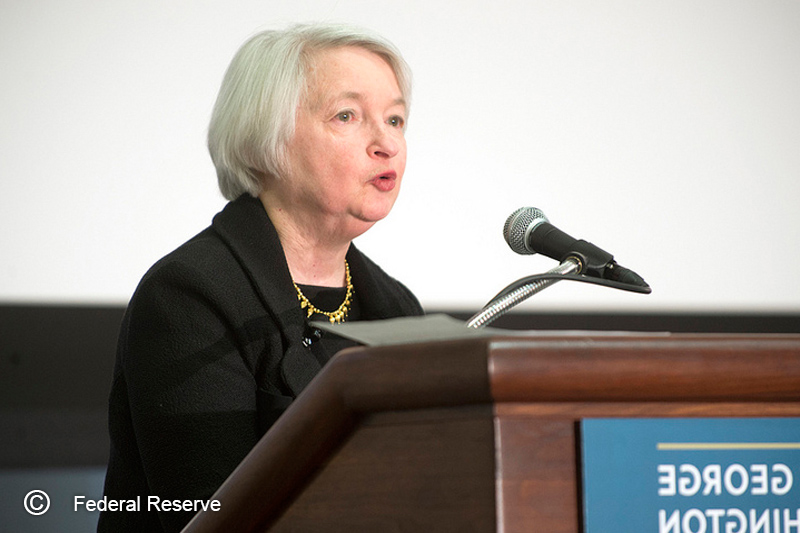By Meagan Clark - Federal Reserve officials are expected to end the central bank’s bond-buying program at their Federal Open Market Committee (FOMC) meeting Tuesday and Wednesday. The Fed is expected debate when and how quickly to raise short-term interest rates next year, and it's also likely to slightly upgrade its assessment of the U.S. economy, economists say. The scheduled end of so-called quantitative easing, or QE, would come as the American economy adds jobs at the fastest pace since the recession began in December 2008.
By most measures, quantitative easing met its goal. The Fed began the program in November 2008, and the effort entered its third phase in 2012, as officials poured cash into the economy to maintain a roughly 2 percent inflation rate while keep borrowing costs low.
“The economy is growing consistently and at a faster pace than it was prior to QE3,” said Greg McBride, chief financial analyst for Bankrate.com. “Unemployment is down below the 6 percent mark and by every measure, has come down. And finally the quality of jobs being created now is better than at any stage in the economic recovery.”
The Fed said at its September FOMC meeting that it planned to end the asset-buying program this month if economic conditions allow. Earlier this month, Fed officials said the U.S. economy is growing at a “modest to moderate” pace as improving consumer spending pressures employers to raise wages in some industries such as construction.
U.S. economic data has continued to show solid health since the last FOMC meeting. One area of concern: The increasing risks to global growth that are causing financial market volatility. Still, “recent developments should have a limited effect on the Fed’s baseline expectation for growth in the near-term, although downside risks to inflation are more pronounced,” Goldman Sachs economists wrote in a research note Friday.

Goldman Sachs expects Fed officials to slightly upgrade their language about the labor market but not make any major changes until the December meeting.
But the Fed is likely to address the recent weakening in inflation, according to Doug Handler, U.S. economist for IHS Global Insight. Weak inflation data gives Fed officials reason to keep interest rates lower for longer. Handler anticipates that though the Fed will keep its language vague as to what inflation-countering policies to employ, it will lean toward delaying any planned interest rate hikes next year rather than additional bond-buying.
The Fed will release its updated policy statement Wednesday afternoon.
